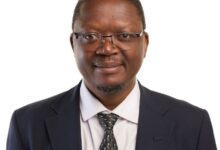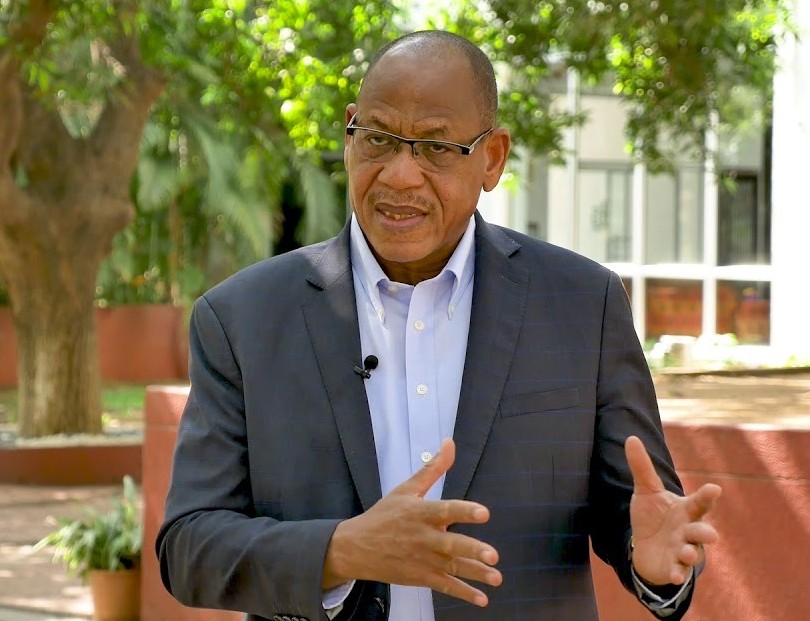INTERVIEW: Why Nigeria Must Launch 281 Product Certification Code Ahead Of AfCFTA -Orngudwem

As Nigeria moves to join other African nations to commence trading under the African Continental FreeTrade Agreement, (AfCFTA) after the global Covid-19 pandemic, Director General of Standards Organization of Nigeria, (SON), Mr. Osita Aboloma has revealed that very soon, Nigerian consumers would be empowered through a product authentication scheme called SONPAM. SON’s Director of Conformity Assessment Programme, Mr. Tersoo Orngudwem tells TheFact Nigeria that the scheme when effected, will protect Nigeria’s 200 milion population from being made dumping ground for imported substandard goods. Excerpts:
In preparation for AfCFTA, your Director General has been speaking about the product authentication scheme, SONPAM aimed to empower the consumers.Tell us more.
Yes, we would like for this concept to be out before the AfCFTA because most of the East African countries are doing it. Kenya has done it for over 4 years now. Malawi and South Africa are also doing it. Ghana is on the verge of starting it. Liberia is about starting too and we are the main market, so to us, it is one of the ways to check dumping. If you go to China as a Nigerian and say just produce it, they have no way of finding out but once the masses who are buying know, and they go to the shop and check, they will leave it there for you and next time you will not order it. We are hoping it will start off before the commencement of AfCFTA, so that with our population of 200 million, we don’t become a dumping ground for all the substandard products from around the globe.
For the understanding of our readers, what is SONPAM?
SONPAM means Product Authentication Mark. It is a mark in form of stamps placed on SON certified products to enable the consumer ascertain that he is buying a product that is of quality and it will give value for money before buying it. The checking can be done using SONPAM app on a smart phone to scan the mark or by sending a code on the mark by SMS to a short code 281 to obtain confirmation.
What will SON achieve with the Product Authentication Mark scheme?
Like the name applies, it is Product Authentication Mark. SON has Standards Organization of Nigeria Conformity Assessment Program, (SONCAP). It also has Mandatory Conformity Assessment Programm, (MANCAP) which is for the local one. SONCAP is for the imported goods, and these are products regulated by SON. The ones regulated by NAFDAC are not covered. So before now, what happened is, the local ones have MANCAP mark on it so you can identify, but the imported ones, even me, who is at the head of Certification, if I go to the market, there’s nothing to show me that this product is certified. So we want a situation where products certified overseas by our partners when they come here, they carry that mark so that consumers can identify the products before buying. Moreover, we are very few in number. The SON staff population nationwide is less than 2,000, and out of the 2,000, less than 1,000 are technical staff, including me so field work to monitor the influx of substandard goods is very difficult. So we are of the idea that if we introduce this Mark which consumers themselves can verify the quality of products before they’ll buy, it will serve as a tool for checking the influx of substandard goods in the markets. If you bring the one that doesn’t have the mark and you keep it on your shelf, and the consumers check and they don’t see the Mark, then they will not buy, it will remain there for you. If you as a consumer check it and you deliberately decide to buy it, maybe due to pocket forces, it is you that is taking your destiny into your hands. So the program is aimed at assuring the Nigerian consumers of quality products certified by SON and they should be able to determine that on their own before they buy. The Mark is such that when a product is certified by our partners abroad, and it comes in here, it then assures us that certificate, already, the partners have shown us that certificate, we know the exact number of quantities you are bringing. The Mark is placed on the product, and it’s for individual products so even if you have two of the same products, each of them will have a different Mark because the code on A and B will not be the same so if you have an android phone, you can scan because there is an App we are creating. We call it SONPAM, so when you download it with an android phone, once you see that Mark, you pass your android phone on it, it will indicate to you its of good quality certified by so so and so. The one that has an expiry date, it will also show it to you, then you are free to buy. If it is not okay, it will say, ‘not certified’ so as a consumer, you can quietly drop it there. As you scan it, it will also send a message to our server because it is coming with some GPRS system. So to some approximate extent, we’ll know where the product is located, if you as the consumer doesn’t want to call us to report. That is number one. Number two, you may ask, what about the consumer who doesn’t have an android phone? We have partnered with the Nigerian Communications Commission, (NCC) and they have given us a short code, 281 for SON. That is also part of what is delaying the process because we don’t want the identification Mark to be only for the elite. We want at least, every Nigerian that has a phone to be able to use it, even if he is in the village as far as there’s network. So even if you don’t have an android phone and you can at least read, which is also a problem because some have phones but they can’t read. So you can look at the code number on the Mark, you send a text to 281 and within 5 seconds, it will reply you, ‘goods certified’ just as you’ll see if you use an android phone. That way, you will take the decision to buy. The short code has not yet materialised because we are working with the telecoms, to ensure that they integrate it into their systems. So out of the four, only two have achieved that. We are hoping that the other two will achieve that before the end of this month. Once that is done, to an extent, just like I told you at the beginning, we are now sure of the concept. We will now test-run it to see how it will work before we go public.
Sending messages via short codes can cost a forune. How will the consumer afford to pay as pereach item?
We are working with the NCC and the telecoms so they will offer it as part of their social responsibility in aiding our economy so they are not going to charge and even the majority of the costs, will be taken by the SON itself. So its not going to the consumer, its like a toll-free line which is not costing the consumer anything. That is one of the things that delayed it, because we had to partner with them. We went to the NCC to make them see the importance of this to the economy because even they are affected. Other people are counterfeiting their products one way or the other so they saw the good of it so they are coming in as part of their social responsibility to the Nigerian government and populace together.
What are the foreseeable challenges?
The challenge we also have is, we wanted to do it for both local and imported goods because many of the local manufacturers complain of people counterfeiting their products. We thought we’d take advantage but when we met with Manufacturing Association of Nigeria, MAN and NACCIMA, they complained that that will add to their cost of production. We intend to do jingles in the local languages for people to fully understand our message.
When does SON intend to go public with this scheme?
Just as our Director General mentioned, we would have launched this scheme long ago, but when we met with the stakeholders, the local manufacturers. To them, it is adding to the cost of doing business. We have talked with our partners. This is like a PPP. Its not costing the government of Nigeria anything. It may not be 100 percent but we believe that if we involve the consumers in checking, it will reduce the issue of counterfeiting and substandard goods to the barest minimum.
We still need authorization from the ministry. We will do it only for imported goods that are regulated by us. Any other manufacturer who is not in our net but wants it, you will sign an undertaking because if we do it, they will say that we are doing double regulations on them, that SON and NAFDAC are doing something similar but we have drawn the line now. If you are in the food and medicament, don’t come over to this side, stay there. But if we start it and you want, voluntarily you will sign an understanding with us saying that you saw the product you like it, it will help you in checking your issue of counterfeiting products that is affecting you, then we can take you in.
Outside of the food and medications, what products are the scheme targeted at?
The scheme is targeting anything outside of medication; bulbs, tyres, paint, cables, anything that is under the SON regulations. We are still talking. Our Director General is talking with NAFDAC but as you can see, their checking is mainly on medicine now, which is the scratching code. By cosmetics, there’s nothing to check which is dangerous to the body, even the food itself. So we cannot jump into an area that we do not have jurisdiction or the same people we are trying to help will say we are doing double regulation. That is why we are creating a room, particularly for local manufacturers, if you feel the scheme will help you, you sign an understanding that you want to use it for the purpose of checking for counterfeiting and you voluntarily decided to do it. A cosmetic company can decide to, but that is on the condition that your product meets our standard requirements. Don’t forget, all the standards are provided by us, but when it comes to food and medicines, they are regulated by NAFDAC.
How do you rate the level of compliance from stakeholders?
The level of compliance will be the take up of people coming to obtain the stamp. We have only introduced the concept and the request for it is already overwhelming, but our supervisor, our Ministry has to give us the permission to go on. Finally, in a way, they have agreed, but we are excluding locally manufactured goods.






